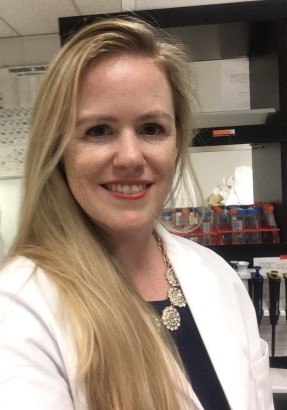NASA astrobiologist to visit Dakota State
April 22, 2019
 A NASA scientist is visiting Dakota State University April 23-25 to talk with students and the public about astrobiology and the origins of life.
A NASA scientist is visiting Dakota State University April 23-25 to talk with students and the public about astrobiology and the origins of life.
Dr. Laurie Barge, astrobiologist from the NASA Jet Propulsion Lab, will talk with students, visit classrooms, and share about her field of study during a public presentation titled “Searching for Signs of Life and its Origin on Other Planets.” The visit is sponsored by the university’s STEM Institute.
“Talking to students is great,” says Barge, “since I enjoy telling others about astrobiology and origin of life, and about how we search for life on other worlds.” She finds that “these are issues of interest to all kinds of people even outside of my field.” She also enjoys attending the students’ classes. “Since I’m not a professor I don’t teach, so campus visits and guest lectures are a great way to get that kind of experience.”
Visiting universities and making connections with professors and their students also has professional benefits for all involved, as “this is a great way to find potential interns who might be interested in astrobiology,” she stated.
Because astrobiology is very interdisciplinary, Barge stated, “You need to deal with chemistry and geology and physics and biology and planetary science all at the same time,” she said, and has found that “students are often willing to consider learning types of work outside of their specific major.”
Barge said: “I like working with students for a lot of reasons, but mostly because they are (usually) willing to try out new projects and consider joining new types of research.” She recently collaborated with Dakota State senior Hope Juntunen, on research that Juntunen will feature at the 2019 Posters on the Hill session on Capitol Hill on April 29-30; this is hosted by the Council on Undergraduate Research.
Barge’s presentation, “Searching for Signs of Life and its Origin on Other Planets” is set for Wednesday, April 24, at 6 p.m. in the Habeger Science Center Auditorium; a reception is being held from 5 – 6 p.m. She will discuss important issues in astrobiology such as the study of life’s origin on Earth, understanding how life gets energy from its environment, how other planets provide habitable environments, and what this means for the search for life on Mars and the ocean worlds of our solar system.
The public is invited to attend.
